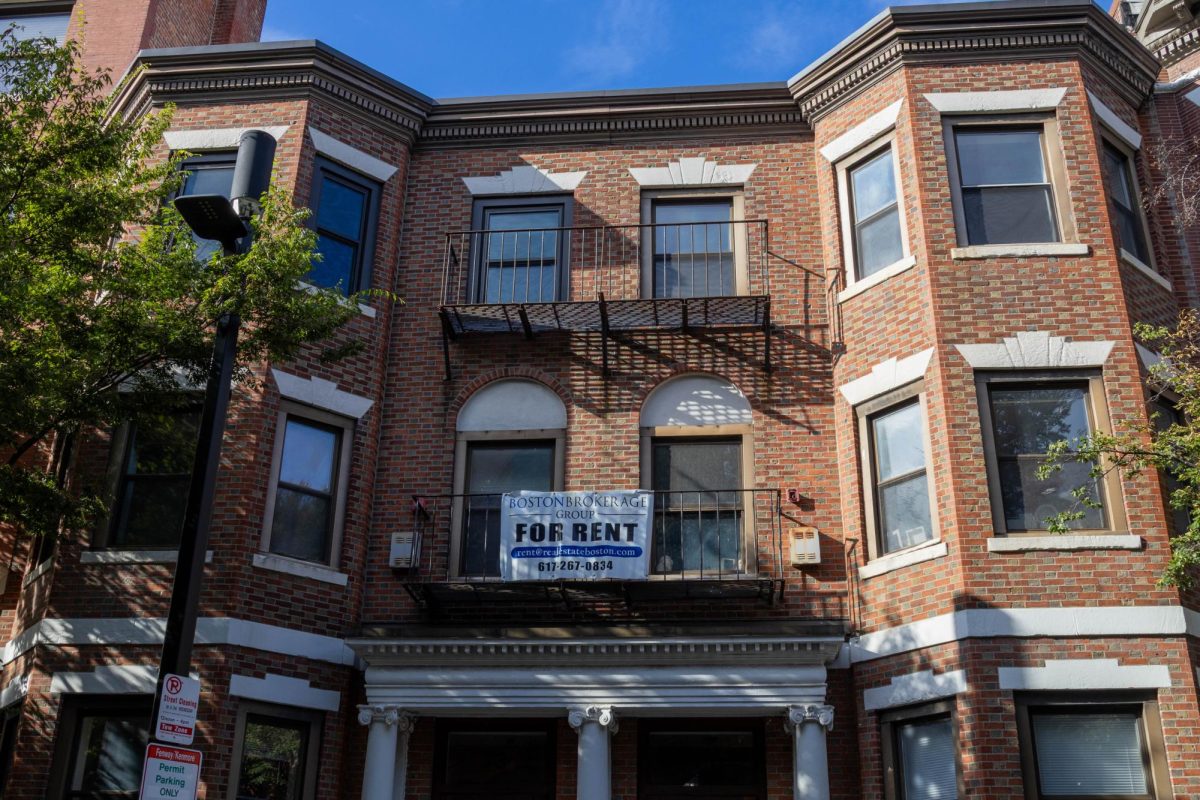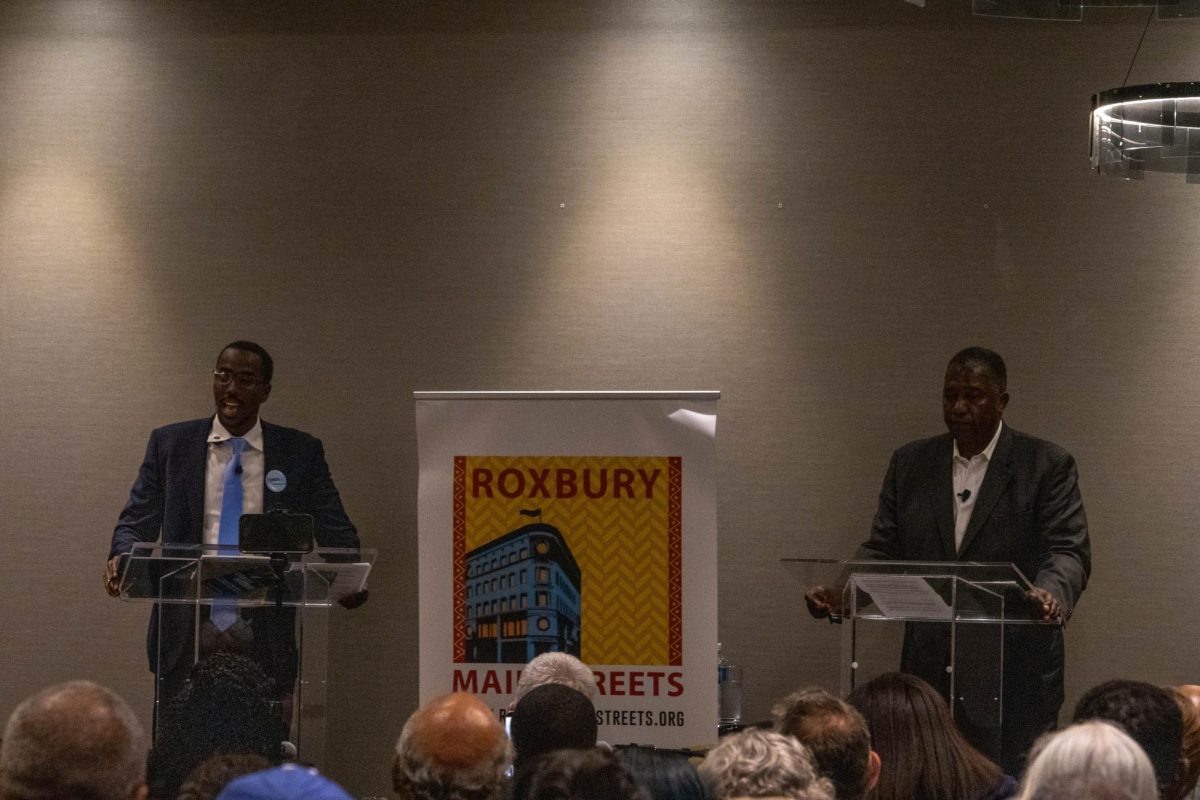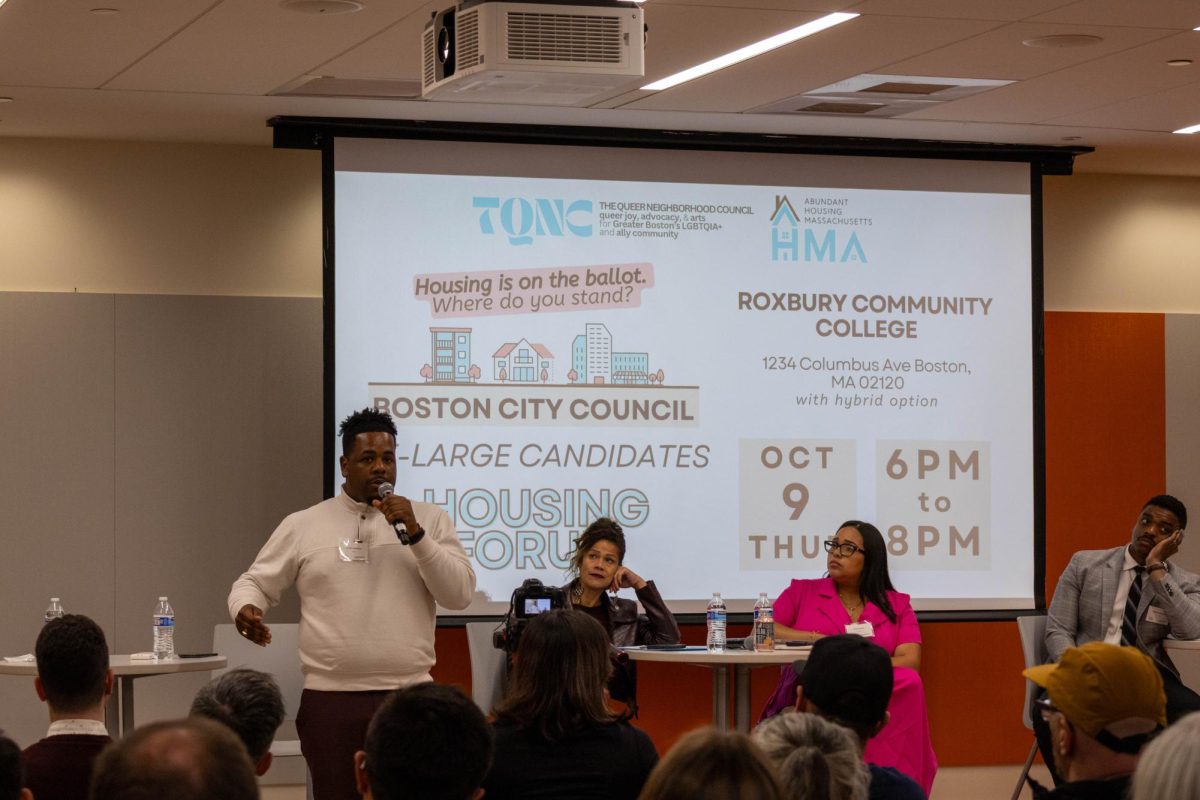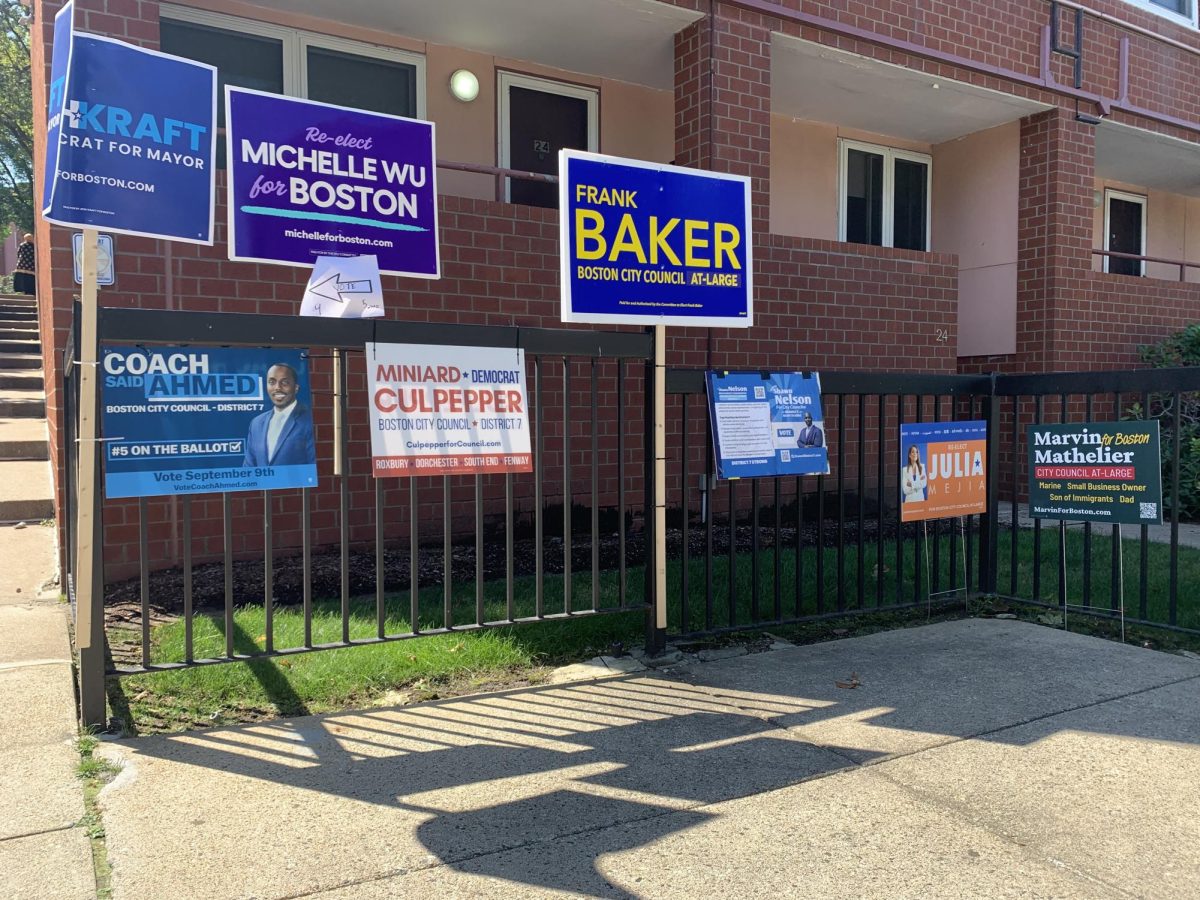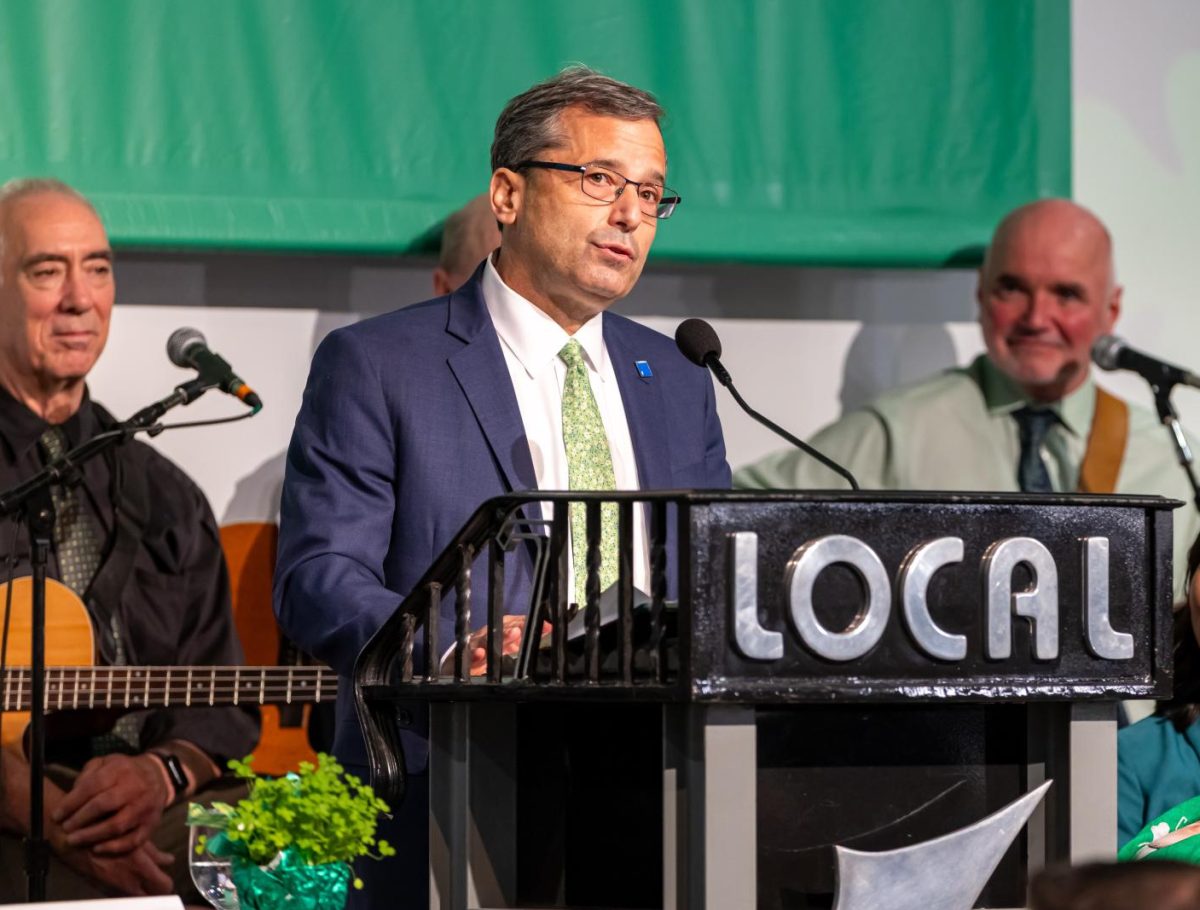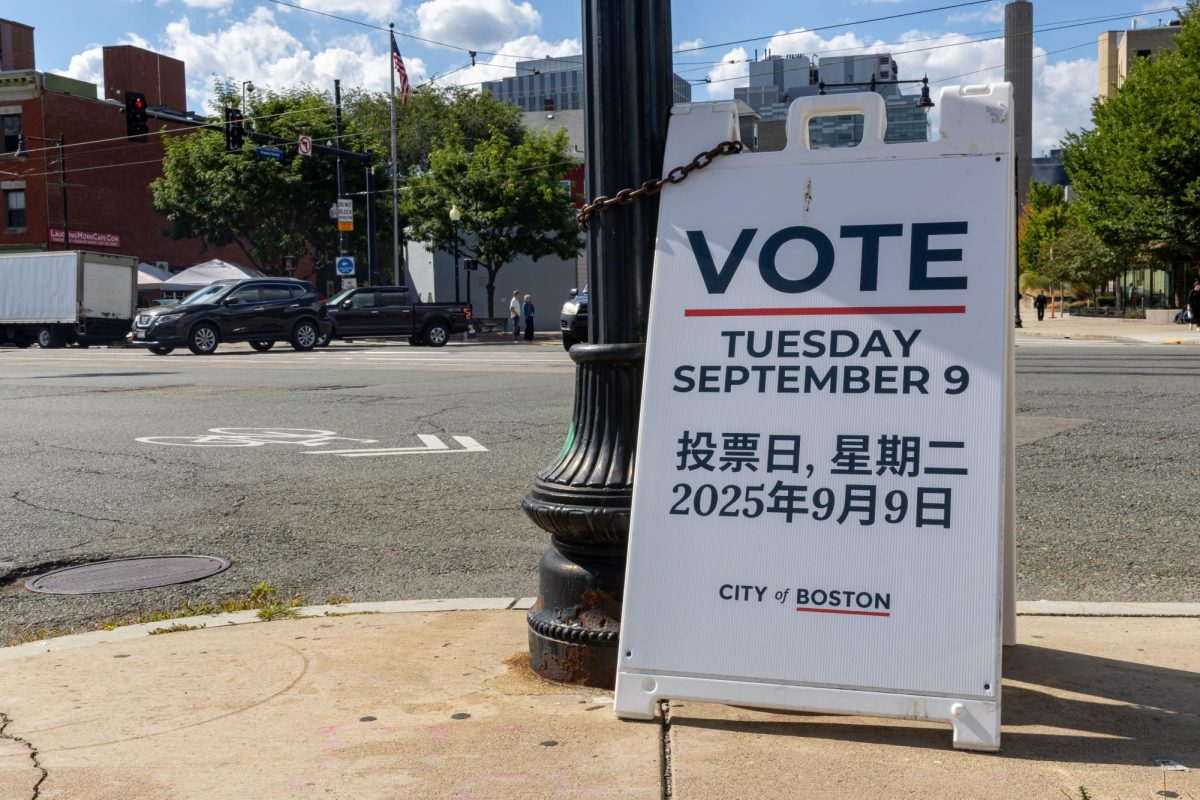As Boston approaches municipal elections, the housing crisis persists across the city. Every candidate has their own opinions and policies for addressing it, but The Scope heard from expert housing advocates about the solutions they’re looking for from elected officials.
Boston’s undeniable housing crisis presents itself in many different forms. For starters, there is not enough housing for the city’s population, there is a lack of affordable living options and there aren’t accessible pathways to owning a home.
“I don’t subscribe to the belief that just by building enough market-rate housing, it will automatically solve this crisis and make things more affordable for everybody,” said Mark Martinez, a housing staff attorney at the Massachusetts Law Reform Institute. “Market-rate housing is absolutely part of the puzzle, but at the end of the day, we also have to be really intentional about building things that are affordable to the families and the individuals that are living in Massachusetts and struggling to get by, and so we need to build affordable housing, and that is not a cheap thing. There are policies that cities and towns can enact.”
While the city is somewhat limited in the policies it can implement without support from the state government, Boston housing experts have a wide range of ideas on how elected officials could ease these problems. Building more affordable housing is the primary goal, which requires implementing inclusionary zoning and other initiatives.
The real estate transfer fee, which would enable Boston to raise money specifically for the construction of affordable housing, and the Tenant Opportunity to Purchase Act, which would preserve naturally occurring affordable housing, are two pieces of state legislation that would promote and facilitate the building and preservation of affordable housing. It isn’t enough for candidates to say they want to build more housing; experts say there are policy pathways that must be taken to achieve this.
“We have to figure out how we can preserve the affordable housing that does exist already, to make sure we aren’t losing that to corporate investors,” Martinez said.
Zoning reform is another significant factor that candidates must address to tackle the city’s housing crisis. Boston has very restrictive zoning regulations that make building affordable homes challenging, time-consuming and very expensive. Under Mayor Michelle Wu, the city has already begun rolling out inclusionary zoning initiatives that will make it faster and cheaper to build throughout Boston, ultimately lowering prices for renters and buyers. Supporting inclusionary zoning reform is a tangible way to campaign for affordable housing in the upcoming elections.
“Zoning determines what can be built and where, and our zoning code, compared to similarly sized cities, as well as some larger cities around the country, is much longer, much more complicated and more inequitable than any other city. Our zoning code is actually more than double the size of New York City’s zoning code, and all of that means that we have created an incredibly complex system that makes it hard to build the homes we need,” said Jesse Kanson-Benanav, the executive director of Abundant Housing Massachusetts.
Rent prices have reached extreme highs and only continue to climb throughout the city. The average rent price for all bedrooms and all property types in Boston is $3,300 — 57% higher than the national average. A one-bedroom apartment is more than double the standard national price for a space that size. Residents may pay rents they can barely afford, leaving them with little bargaining power.
A smaller but impactful step that elected officials could take is to further eliminate the extra fees tacked on to people’s rent costs. While Massachusetts recently banned charging tenants broker fees if they did not hire the service, residents still pay many “junk fees,” according to Todd Kaplan, a senior attorney in the Consumer Rights Unit of Greater Boston Legal Services. Landlords will add these fees for a broad range of reasons, and whether it’s for cleaning the apartment or switching roommates, it makes the cost of living all the more expensive.
These exceedingly high housing costs, coupled with a severe lack of available housing and intense competition from investors and high-income buyers, make owning a home challenging. Buying is much tougher in Boston than almost anywhere else in the country, especially for younger or first-time buyers.
Landlords may also use tenant screening services to determine who would be a satisfactory resident. These screening services typically rely on credit scores, which are not always representative of a tenant’s ability to pay rent, according to Kaplan. People are excluded from good housing and living in “high-opportunity areas” by this artificial barrier.
“Tenant screening is another huge issue, and the kind of solutions that we would like to see are greater regulation from the state government,” said Kaplan. While Boston’s elections will not affect who represents the state government, the mayor and the city council are very influential in lobbying for or against state laws.
Most of the actionable steps that elected officials can take will not offer Boston residents immediate relief. Some housing experts advocate for rent control or rent stabilization to maintain more reasonable rent prices while more affordable housing is built. Another form of support can come from offering tenants counseling when they’re evicted and protecting eviction records after a certain amount of time so that they may move again.
Past elected officials have addressed Boston’s housing market in various ways, from attempting to implement rent control to updating zoning regulations. Housing is already a prioritized issue in the election and will likely be talked about in upcoming candidate campaigns.


